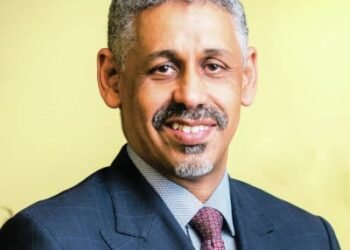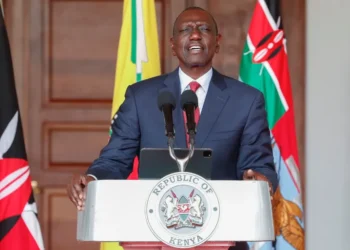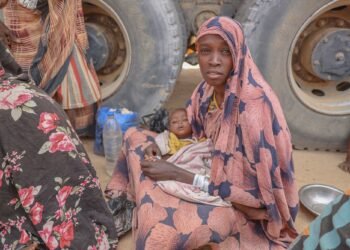The African Development Bank (AfDB) has presented strategic measures to tackle the growing challenges of debt and foreign exchange (forex) in Nigeria and across Africa.
These insights, shared by Prof. Kevin Urama, the Bank’s Vice-President for Economic Governance and Knowledge Management, emphasize the importance of debt quality, effective fund utilization, local production, and stable governance in building resilient economies.
Debt, when managed effectively, can serve as a vital engine for economic development. According to Prof. Urama, the issue is not merely the accumulation of debt but ensuring its structure and quality support sustainable growth. “Debt for growth is a recognized strategy for economic development. However, the structure and quality of the debt are critical in determining its long-term sustainability and impact,” Urama stated.
A major concern is the increasing reliance on short-term, high-cost commercial loans by African nations. This approach often leads to refinancing challenges, as loans mature faster than the investments they are meant to support. Prof. Urama cautioned against such practices, explaining, “The problem emerges when nations take on short-term loans but cannot repay them before investments mature.”
He advocated for a shift toward securing longer-term loans with lower interest rates, coupled with robust investment strategies designed to yield sustainable returns. This approach, he noted, would reduce refinancing risks and strengthen economic stability.
For Nigeria, the emphasis should not be on the volume of borrowing but on the strategic deployment of borrowed resources. Prof. Urama pointed out that channeling funds into infrastructure projects with clear short- and long-term benefits could transform borrowing into a growth catalyst.
Addressing Forex Challenges Through Local Production
Africa’s heavy reliance on imports, particularly for food, has made its economies vulnerable to global disruptions. The war in Ukraine, for instance, has exposed the continent’s over-dependence on imported wheat, even though Africa possesses 65% of the world’s remaining arable land. “Africa has no business importing wheat from Ukraine when the continent holds such vast agricultural potential,” Urama asserted.
To reduce this dependency, the AfDB has launched initiatives like the AgriPreneur program and Special Agro-Industrial Processing Zones (SAPZ) to unlock Africa’s agricultural capabilities. These programs aim to boost food production, strengthen value chains, and promote exports.
Ethiopia’s agricultural transformation provides a compelling example of what is possible. Once a major importer of wheat, Ethiopia has become a wheat exporter within four years, thanks to focused agricultural investment. “This demonstrates that Africa can not only achieve food self-sufficiency but also become a global exporter,” Urama noted.
For Nigeria, prioritizing agricultural investment could address forex challenges, stabilize the naira, and position the country as a competitive food exporter.
The Role of Political Stability in Economic Resilience
While addressing economic challenges, Prof. Urama highlighted the critical role of political stability and sound macroeconomic policies in fostering growth. He pointed to Botswana as a successful example of how stable governance can attract investment and lower borrowing costs. “When political stability and good governance are in place, the cost of capital decreases, investments flow more freely, and economic growth accelerates,” he explained.
Urama emphasized that long-term strategies should focus on creating an environment of stability and sound economic management. By doing so, African nations can reduce their reliance on external financing and stabilize their currencies.
For Nigeria, the path to economic stability lies in balancing borrowing with strategic investments. Prof. Urama emphasized that effective utilization of borrowed resources, particularly in infrastructure, can spur both immediate and sustained growth.
In addressing forex challenges, Nigeria can draw lessons from Ethiopia’s agricultural model, investing in local production to reduce dependency on imports. By harnessing its vast arable land and youthful population, Nigeria has the potential to become a major player in global agriculture.
Africa’s economic challenges are significant, but they are not insurmountable. The AfDB’s recommendations offer a roadmap for sustainable growth: prioritize debt quality, invest in local production, and foster political stability. With initiatives like SAPZ and AgriPreneur already demonstrating success, the continent has the tools to transform its economic landscape.
As Prof. Urama aptly concluded, “Africa’s growth lies in leveraging its resources, people, and governance to build economies that are not only self-sufficient but globally competitive.”
Through strategic action, Africa can move from vulnerability to resilience, turning challenges into opportunities for long-term prosperity.
READ ALSO: Agriculture Stakeholders Congratulate President-Elect John Dramani Mahama







